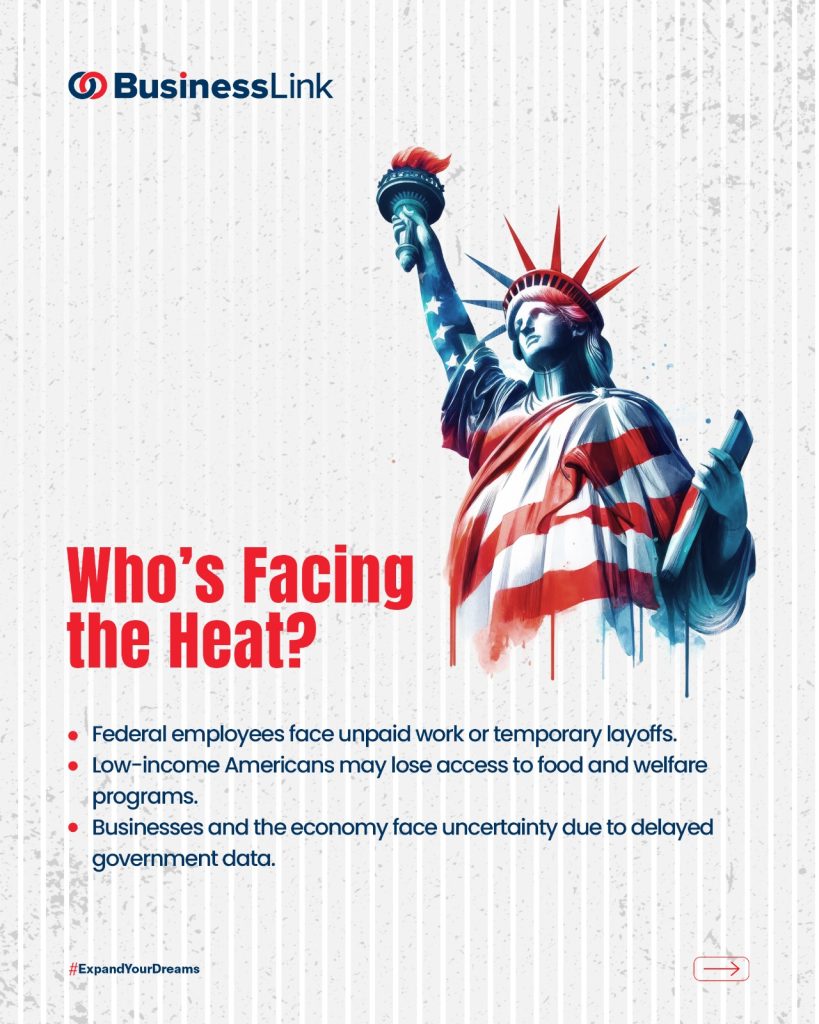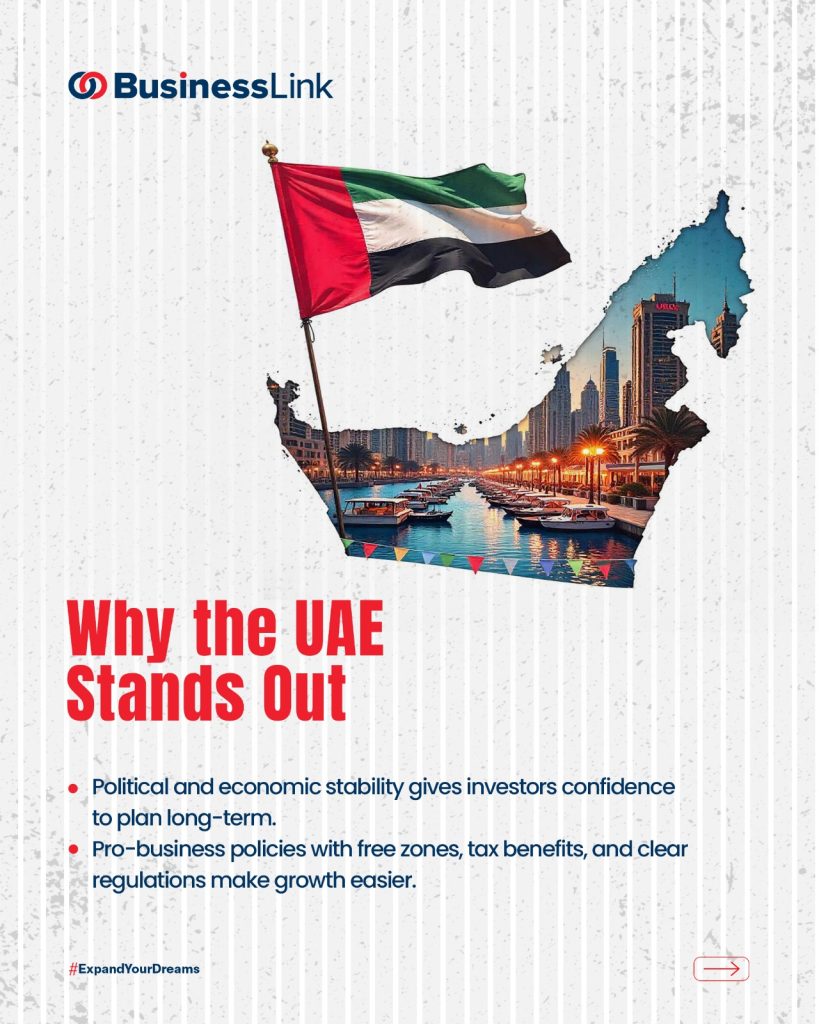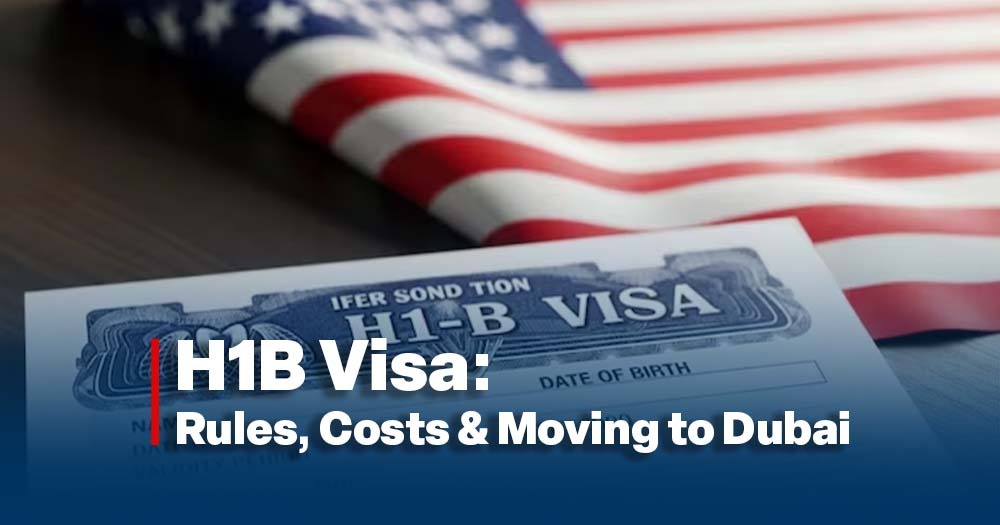H1B visa filings surged to 780,884 in 2024, yet only 110,791 were selected, says USCIS.gov. With the new $100,000 fee arriving in 2025, UAE professionals face harder choices. Should you still chase U.S. jobs or shift to the UAE’s Golden and Green Visas? In this guide, I will explain the rules, costs, and UAE alternatives so you can decide with confidence and plan your career path wisely.
Table of Contents
Toggle- H1B Visa and UAE Professionals: Everything You Need to Know in 2025
- Who Qualifies for an H-1B Visa? The Core Requirements in 2025
- Can an H-1B Visa Lead to a Green Card for UAE Professionals in 2025?
- Is an H-1B Visa Better Than a Green Card for People Living in the UAE?
- What Makes the Green Card a Better Option?
- What is the difference between H-1B and H-1B1 visas—and which suits UAE workers better?
- How Long Does the H-1B Visa Process Take for Workers from the UAE in 2025?
- Can a UAE Professional Change Employers While on an H1B Visa?
- Will the $100,000 H-1B Visa Fee Affect UAE Applicants in 2025?
- What are the main benefits of holding an H1B visa for UAE professionals?
- What are the main steps to apply for a UAE skilled visa, often compared to an H1B visa?
- What Documents Are Required for UAE Skilled Workers Similar to an H1B Visa?
- Summary
- FAQ’s
H1B Visa and UAE Professionals: Everything You Need to Know in 2025
The H1B visa has long been one of the most popular U.S. work permits for skilled professionals. For many people in the UAE, it was the key to career growth in America. But new rules in 2025 have changed the landscape, making the UAE itself a stronger option for global talent.
I will explain what the H1B visa is, how it connects to UAE professionals, and why the UAE’s flexible visa options may now be the better choice.
What is the H1B Visa?
- A U.S. non-immigrant work permit for specialized jobs like IT, engineering, and healthcare.
- Requires sponsorship from a U.S. employer.
- Applicants need a bachelor’s degree or higher in a related field.
- Issued for three years with the option to renew for another three.
- Often seen as the first step toward a U.S. green card.

How the H1B Visa Relates to UAE Professionals
- Many UAE-based professionals, particularly those from India and Pakistan, apply through U.S. employers.
- Applications are submitted at the U.S. Embassy in Abu Dhabi or the U.S. Consulate in Dubai.
- Families in Dubai and Abu Dhabi often view the H1B as a gateway to U.S. education and healthcare.
- Applicants usually keep their UAE residency while waiting for U.S. visa approval.
New 2025 Policy Changes: Why the UAE Matters More
- On September 19, 2025, the U.S. introduced a $100,000 fee for many new petitions.
- Current visa holders are not affected, but new applicants face higher costs.
- This rule shocked applicants globally, leading many to explore UAE alternatives.
- Meanwhile, the UAE has expanded its Green Visa and Golden Visa programs, offering stability and lower costs.
H1B Visa vs UAE Skilled Visa
|
Factor |
H-1B Visa (U.S.) |
UAE Work / Golden Visa |
|
Sponsor Requirement |
U.S. employer only |
UAE company or self-sponsorship |
|
Typical Duration |
3 years + 3-year extension |
2–3 years (Work Visa) / 5–10 years (Golden Visa) |
|
Residency Path |
May lead to a Green Card |
Direct long-term residency |
|
Application Location |
U.S. Embassy in Abu Dhabi / Dubai |
UAE immigration offices |
|
Main Sectors |
IT, engineering, healthcare |
Wider — trade, AI, real estate, finance |
Steps for UAE Residents Applying for an H1B Visa
- Secure a U.S. job offer.
- Employer files a petition with USCIS.
- Wait for lottery results if quotas apply.
- Schedule an interview at U.S. missions in the UAE.
- Provide documents (degree, passport, job contract, experience).
- If approved, prepare for relocation from the UAE to the U.S.

Why the UAE is Becoming a Stronger Choice
- Faster, simpler, and more affordable visas compared to the U.S.
- Green and Golden Visas offer long-term residency and self-sponsorship.
- No income tax and family-friendly residency rules.
- Dubai and Abu Dhabi are growing hubs for AI, finance, and technology.
- The UAE government actively promotes talent through global campaigns.
The H1B visa still opens doors for many UAE professionals, but rising costs and tighter rules make it less accessible. At the same time, the UAE itself has become a global hub for skilled talent.
With long-term residency programs, strong career opportunities, and unmatched lifestyle benefits, the UAE is no longer just a stepping stone to the U.S.—it is now a top destination in its own right.
Looking to secure your future in the UAE? Business setup, visas, or a real estate broker license, our experts guide you every step of the way. Contact us today and explore the UAE’s smarter, faster path to success.
Who Qualifies for an H-1B Visa? The Core Requirements in 2025
To qualify for an H-1B visa in 2025, you must be a skilled professional working in a specialty field, hold at least a bachelor’s degree or equivalent, and have a valid job offer from a U.S. employer ready to sponsor you. Both you and the job must meet U.S. legal standards.
Core Requirements for the Job and Candidate
|
Requirement Category |
Key Details |
|
Specialty Occupation |
The job must normally require a bachelor’s degree or higher in a specific field. |
|
Education |
You must hold a U.S. degree or an equivalent foreign qualification in the same or a closely related field. |
|
Employer Petition |
A U.S. employer must sponsor you and file Form I-129 on your behalf. |
|
Labor Condition Application (LCA) |
The employer must submit a certified LCA showing fair wages and work conditions. |
|
Licensing |
For regulated fields such as medicine, law, or engineering, you must have the required U.S. license before or shortly after approval. |
|
Annual Cap & Lottery |
85,000 visas are issued each year, with most cases selected by lottery. |
Key Points Explained
- Specialty Occupation: Jobs must require advanced knowledge in fields like IT, engineering, finance, or healthcare.
- Education Requirement: A U.S. bachelor’s degree or foreign equivalent is required. In some cases, many years of progressive work experience may replace a degree.
- Employer’s Role: The employer files petitions and proves they will pay at least the prevailing wage.
- Licensing: Certain professions demand U.S. state licenses before approval.
- Lottery and Quotas: With demand far higher than supply, most petitions go through a random selection process.
2025 Policy Updates
- A new $100,000 petition fee applies to many fresh applications filed after September 21, 2025.
- Current H-1B holders and extensions with the same employer are not affected.
- Employers, not employees, must cover this cost.
- Priority is given to applicants with:
- Higher wage offers
- Advanced U.S. degrees, especially in STEM fields
- Specialized, in-demand skills
The H-1B visa still opens career doors in the U.S., but it has become more costly and competitive in 2025. By comparison, the UAE’s Golden visa and Green Visas give professionals long-term stability, lower costs, and freedom from employer ties. For many, the UAE is now not just an alternative but a stronger choice for career and family growth.
Can an H-1B Visa Lead to a Green Card for UAE Professionals in 2025?
Yes, but the process is long, complex, and depends on your employer. Here’s what UAE professionals need to know this year and follow step by step.
Step-by-Step: From H-1B to Green Card
- Understand H-1B Dual Intent
The H-1B visa allows you to apply for a green card while working in the U.S. legally. - Secure Employer Sponsorship
Your U.S. employer must file a PERM Labor Certification followed by Form I-140. No sponsorship = no process. - Track Your Priority Date
This date is set when your PERM is filed. You cannot move forward until this date becomes current. - File Form I-485 (Adjustment of Status)
Once your priority date is current, submit Form I-485 to adjust your status and become a permanent resident. - Apply for EAD and Advance Parole
During the wait, you can apply for a work permit (EAD) and travel document (Advance Parole) to stay active and mobile. - Prepare for Long Processing Times
Wait times often exceed 10 years, especially for countries with high demand. UAE nationals may face similar delays. - Explore EB-5 Investor Visa (Optional)
If eligible, you can invest $800,000 in a U.S. business and get a green card faster—no employer needed. - Consider UAE Golden/Green Visas
Many UAE professionals now choose 5–10 year UAE residency programs. These offer stability, tax-free income, and no employer restrictions.
Read more about :schengen visa 2025.
H-1B vs UAE Residency
|
Feature |
H-1B to Green Card |
UAE Golden/Green Visa |
|
Sponsorship |
Employer Required |
Self-Sponsored |
|
Timeline |
5–15+ Years |
2–10 Years |
|
Job Flexibility |
Limited |
Full Flexibility |
|
Family Residency |
Included |
Included |
|
Cost & Process |
High & Complex |
Affordable & Simple |
|
Taxes |
U.S. Taxed |
No Income Tax |
While the H-1B visa can lead to permanent U.S. residency, it requires patience, strict employer support, and long wait times. In contrast, the UAE’s long-term residency programs offer career freedom, tax benefits, and faster approval. Choose the path that aligns with your future.
Is an H-1B Visa Better Than a Green Card for People Living in the UAE?
No, a green card is better than an H-1B visa for UAE professionals.
It gives permanent residency, full job freedom, and a path to U.S. citizenship. In contrast, the H-1B is temporary, employer-dependent, and now comes with high costs. With the $100,000 petition fee added in 2025, the H-1B is becoming less practical. Many UAE professionals now choose green cards or UAE Golden Visas for long-term stability and flexibility.
H-1B vs Green Card: Key Differences for UAE Professionals
|
Feature |
H-1B Visa (U.S.) |
Green Card (U.S.) |
UAE Long-Term Visas |
|
Residency Type |
Temporary (max 6 years) |
Permanent (10-year renewable) |
5–10 years, renewable |
|
Employer Dependency |
Yes |
No |
No |
|
Job Flexibility |
Limited |
Full freedom |
Full freedom |
|
Family Rights |
H-4 visas, limited work access |
Equal rights for spouse/children |
Family sponsorship available |
|
Cost in 2025 |
High – $100,000 new petition fee |
One-time immigrant filing |
Affordable (AED 2,280–5,000) |
|
Tax Obligations |
U.S. federal and state taxes |
Full U.S. income tax |
No income tax |
|
Path to Citizenship |
None |
Eligible after 5 years |
Not applicable |
What Makes the Green Card a Better Option?
1. Permanent Status, Not Temporary
H-1B visas only last up to 6 years and require constant renewals. A green card gives you long-term security with renewals every 10 years. You can live, work, and travel freely without losing your status if your job changes.
2. No Employer Dependence
With an H-1B, losing your job means you only have 60 days to find a new sponsor or leave the U.S. A green card removes this risk. You’re not tied to any employer and can switch jobs, launch a business, or take a break without worry.
3. Better for Families
H-4 visa holders (your spouse or children) under H-1B often can’t work unless they apply separately. A green card gives them equal residency rights, including work access.
4. Citizenship Eligibility
Green cards allow you to apply for U.S. citizenship after 5 years. The H-1B doesn’t. It’s only a temporary work permit.
5. Lower Long-Term Risk
With the new $100,000 fee for fresh H-1B petitions, employers may hesitate to hire new foreign workers. Green cards, by comparison, don’t carry that cost and don’t rely on annual lottery quotas.
The 2025 Policy Shift: Why It Matters
In September 2025, the U.S. added a $100,000 filing fee for many new H-1B applications. This sudden cost spike makes the H-1B pathway harder for both workers and companies.
- Employers must pay the full fee
- Many companies may reduce international hiring
- Professionals now look for visa options that are more stable and affordable
What About UAE Alternatives?
Professionals in Dubai, Abu Dhabi, and across the UAE now find the local Golden Visa and Green Visa programs more attractive.
- Self-sponsorship allowed
- 5–10 year renewable residency
- No income tax
- Full work and business rights
- Family sponsorship included
These visas offer long-term security without the complexity or cost of U.S. immigration.
What Should UAE Professionals Choose?
- The H-1B visa may give you short-term U.S. job access, but it’s temporary, employer-dependent, and expensive in 2025. A green card offers long-term residency, family stability, career freedom, and a real chance at citizenship.
- Meanwhile, the UAE now provides permanent-style residency with fewer restrictions, faster approval, and zero tax.
- If your goal is lasting security, professional freedom, and family support, a green card or UAE residency is far better than the H-1B visa.
If you’re looking to grow your career, secure your family’s future, or start your own business, we help with both U.S. green card guidance and UAE residency solutions.
- Business setup
- Golden Visa
- Green Visa
- Real Estate Broker License
Reach out today and discover the path that works best for you.
What is the difference between H-1B and H-1B1 visas—and which suits UAE workers better?
The H1B visa is best for most UAE professionals. The H1B1 visa is limited to Chilean and Singaporean citizens. Therefore, unless you hold one of those two passports, the H1B visa is your only U.S. work option. However, recent fee hikes and long wait times make the UAE’s own long-term residency visas a more stable choice.
H-1B vs H-1B1: Key Differences for UAE Residents
- Nationality eligibility
- H-1B: Open to all countries.
- H-1B1: Only for Chilean and Singaporean citizens.
- Green card path
- H-1B: Supports dual intent. You can apply for permanent residency.
- H-1B1: No formal dual intent. Green card pursuit is harder.
- Validity and extensions
- H-1B: Valid up to 3 years, extendable to 6.
- H-1B1: Issued for 1 year, renewable annually.
- Caps and quotas
- H-1B: 65,000 slots (plus 20,000 for advanced degrees), chosen by lottery.
- H-1B1: 1,400 (Chile), 5,400 (Singapore). Rarely fills.
- Application process
- H-1B: Petition through USCIS, then consular processing.
- H-1B1: Apply directly at a U.S. consulate with an LCA and a job offer.
- Cost in 2025
- H-1B: New $100,000 petition fee added in September 2025.
- H-1B1: Not subject to this new fee.
- Employer ties
- H-1B: You depend fully on one employer.
- H-1B1: Same employer-sponsor rule applies, but the process may be faster.
H-1B vs H-1B1: Key Differences for UAE Residents
|
Factor |
H-1B Visa |
H-1B1 Visa |
|
Who Can Apply |
Open to all countries |
Only Chilean & Singapore citizens |
|
Dual Intent |
Yes (green card path) |
No (temporary only) |
|
Initial Validity |
3 years |
1 year |
|
Quotas |
65,000 + 20,000 (lottery) |
1,400 Chile / 5,400 Singapore |
|
Filing Method |
USCIS petition + consular |
Direct consular filing |
|
2025 Fee Impact |
$100,000 petition fee |
Exempt from the new fee |
Final Takeaway for UAE Professionals
- If you’re a citizen of Chile or Singapore living in the UAE, the H-1B1 visa is simpler and cheaper.
- For everyone else in the UAE, the H1B visa is the only valid U.S. temporary work route.
- However, due to high costs, strict quotas, and job dependency, UAE long-term visas offer more freedom, stability, and speed.
- The Golden Visa gives 5–10 years of residency, self-sponsorship, and no income tax.
- That’s why more professionals now choose the UAE as a destination, not just a stopover.
How Long Does the H-1B Visa Process Take for Workers from the UAE in 2025?
For professionals in the UAE, the H-1B visa process is a long journey. From registration in March to the start date on October 1, it usually spans 6–9 months. Delays can make it stretch longer. Below is a clear timeline plus a comparison with the UAE Golden Visa options.
H-1B Visa Timeline for UAE WorkersKey Delays to Expect
|
Stage |
Typical Timeframe |
Key Details |
|
Employer Registration |
March (2–3 weeks) |
Entry via lottery if oversubscribed |
|
Petition Filing & Review |
3–6+ months |
Premium = 15 days |
|
Embassy Interview |
Weeks to months |
Abu Dhabi or Dubai |
|
Work Start |
From October 1 |
Fixed by U.S. law |
- Requests for Evidence (RFE): USCIS may ask for extra documents, adding 1–2 months.
- Interview Backlogs: Reports show wait times of up to 10–12 months for some UAE residents. Many travel to Oman or Bahrain for faster slots.
- 2025 $100,000 H-1B Fee: A new U.S. rule requires certain fresh H-1B petitions to pay this fee. It does not apply to extensions or renewals.
A Faster Alternative: UAE Golden Visa
The UAE Golden Visa offers 5–10 years of renewable residency and is processed within weeks, not months.
Benefits include:
- No employer dependency, self-sponsored freedom
- Tax advantage. zero personal income tax
- Family stability, full residency for spouse and children
- Flexibility, change jobs or start a business without affecting residency
H-1B vs UAE Golden Visa: At a Glance
|
Feature |
H-1B Visa (U.S.) |
UAE Golden Visa |
|
Timeline |
6–12 months minimum |
1–2 months (fast approval) |
|
Employer Dependency |
Yes |
No (self-sponsorship) |
|
Residency Type |
Temporary, max 6 years |
Long-term, 5–10 years renewable |
|
Family Benefits |
Limited work rights (H-4) |
Full equal rights for the family |
|
Taxation |
U.S. federal & state taxes |
No income tax in the UAE |
H-1B Visa vs UAE Golden Visa: The Best Path for UAE Professionals in 2025
- The H-1B visa is still the only U.S. work route for most UAE residents. But it brings lottery risk, employer dependency, and high costs.
- The UAE Golden Visa is faster, simpler, and more stable, giving global professionals the chance to secure their careers and families locally.
Can a UAE Professional Change Employers While on an H1B Visa?
Yes, UAE professionals can change employers while on an H1B visa. However, the process is not automatic. It requires a new petition, strict timing, and careful planning to maintain legal status.
Key Rules for Changing Employers on an H1B Visa
- New Petition Required: A new employer must file Form I-129 with USCIS.
- Labor Condition Application (LCA): The employer must certify fair wages with the Department of Labor.
- Start Work Early: Thanks to portability rules, you can begin once USCIS issues a receipt.
- No New Lottery: If already counted in the cap, you don’t face the lottery again.
- Grace Period: You have 60 days after leaving a job to secure new sponsorship.
- Risk of Denial: If USCIS denies the petition, you must stop work immediately.
- Family Status: H-4 dependents remain tied to your valid H1B status.
Timeline and Costs to Consider
- Regular processing takes 3–6 months.
- Premium processing gives a decision in 15 business days.
- A new $100,000 petition fee (from Sept 2025) applies in many cases.
- This extra cost may reduce employer willingness to sponsor transfers.
Changing Jobs on H-1B vs UAE Golden/Green Visa
|
Aspect |
H-1B Visa (U.S.) |
UAE Golden/Green Visa |
|
Employer Dependency |
High, tied to one sponsor |
None; self-sponsored |
|
Job Flexibility |
Requires a new petition for each change |
Full freedom to change or start a business |
|
Grace Period |
60 days if the job ends |
Not tied to employment |
|
Processing Speed |
3–6 months (premium = 15 days) |
Weeks, faster approvals |
|
Cost Burden 2025 |
High, $100,000 petition fee |
AED 2,280–5,000 |
|
Residency Stability |
Temporary (max 6 years) |
Long-term renewable |
Finally, yes, you can change employers while on an H1B visa, but the process is strict, expensive, and employer-dependent. Each transfer needs a new petition and carries risk if denied.
In contrast, the UAE Golden and Green Visas offer:
- Faster approvals
- No employer restrictions
- Long-term stability for you and your family
For many UAE professionals, local residency programs now provide a safer and smarter choice for career and family security.
What UAE Professionals Must Know
- UAE license not valid in the U.S. You must pass the U.S. state license exam.
- Specialty occupation rule applies. The job must demand advanced knowledge and usually a bachelor’s degree.
- Sales roles rarely qualify. Most real estate agent jobs fail the specialty test. Senior or analytical roles stand a better chance.
- A degree is required. A license alone is not enough; you need a relevant degree, such as finance, business, or urban planning.
- Employer sponsorship is mandatory. A U.S. company must file your petition and cover the $100,000 H1B fee in 2025.
- Processing takes time. Regular cases may take 3–6 months. Premium processing can finish in 15 days.
- Risk of denial exists. USCIS may reject the petition if the job is not complex enough.
UAE Alternatives Are Easier
- Golden Visa: 5–10 years of renewable residency.
- No employer needed. You can self-sponsor.
- Lower cost. AED 2,800–5,000 vs. $100,000 U.S. petition fee.
- Career freedom. Work, invest, or own property without restrictions.
- Tax benefits. No personal income tax in the UAE.
H1B vs UAE Golden Visa for Real Estate Professionals
|
Factor |
H1B Visa (U.S.) |
UAE Golden Visa |
|
License Requirement |
U.S. state license required |
UAE broker license (RERA/DLD) |
|
Job Eligibility |
Only specialty roles qualify |
Any licensed real estate role |
|
Employer Sponsorship |
Mandatory |
Not required |
|
Processing Time |
3–6 months / 15 days premium |
1–2 months |
|
Cost in 2025 |
$100,000 petition fee + legal costs |
AED 2,800–5,000 |
|
Residency Duration |
Max 6 years |
5–10 years, renewable |
|
Taxation |
U.S. income tax applies |
No personal income tax |
A UAE real estate broker license does not help with an H1B visa. What matters is degree requirements and U.S. state licensing. With high costs and long waits in 2025, the UAE Golden Visa is often the smarter path for real estate professionals seeking stability, freedom, and growth.
Will the $100,000 H-1B Visa Fee Affect UAE Applicants in 2025?
Yes, the $100,000 H-1B visa fee starting September 21, 2025, will directly impact UAE professionals. Employers must cover this cost, making sponsorship less likely. The H-1B process also requires a specialty occupation, a related degree, and a U.S. state license for regulated roles. Most real estate or sales jobs won’t qualify. By contrast, the UAE Golden Visa offers 5–10 years of renewable residency, no employer dependency, lower fees, and complete career freedom.
What are the main benefits of holding an H1B visa for UAE professionals?
For UAE professionals aiming to gain U.S. work exposure, the H1B visa still holds value despite rising costs and tighter rules.
Main Benefits of Holding an H1B Visa for UAE Professionals
If your goal is global mobility, high income, or long-term U.S. settlement, here’s what it still offers:
- Work legally in the U.S. for a qualified employer
- Earn a salary in dollars, often higher than the UAE market pay
- Build a strong international CV with U.S. company names
- Bring your spouse and kids under the H-4 dependent visa
- Children can study in U.S. schools with no separate student visa
- Some H-4 spouses can apply for work permits (EAD)
- Apply for a green card through employer sponsorship
- Access to advanced industries and specialized fields
- Employers often handle visa paperwork and cover fees
- Improve chances of permanent U.S. residency if desired
Even with the $100,000 application hurdle and lottery uncertainty, the H1B visa remains attractive for a specific group of UAE residents: those focused on U.S.-based careers or immigration goals.
However, before you commit, compare it with alternatives like the UAE Golden Visa. For many professionals, staying in the UAE now offers more stability, faster processing, and easier family planning options — without lottery stress or relocation risks.
Think long-term: Is your priority global exposure or regional security? Your answer shapes the right visa choice.
What are the main steps to apply for a UAE skilled visa, often compared to an H1B visa?
- Get a confirmed job offer from a UAE-licensed company
- The company must hold a valid trade, industrial, or real estate broker license
- Submit a medical fitness test and pass the clearance
- Complete Emirates ID biometric registration
- Get work permit approval from MOHRE
- Finalize residency visa stamping in your passport
The UAE visa process is faster, cheaper, and doesn’t require a lottery. Most approvals take 7–14 working days. No degree equivalency, no employer lottery cap, and family sponsorship is easier. This makes it a stronger option for skilled expats in 2025.
What Documents Are Required for UAE Skilled Workers Similar to an H1B Visa?
For skilled workers applying in the UAE under systems similar to the U.S. H1B visa, specific documents are mandatory. These papers prove your identity, qualifications, and legal right to work. Preparing them in advance helps speed up your application.
Core Documents You Must Provide:
- Valid Passport: It must be valid for at least six months from the application date.
- Passport-Size Photos: Recent, clear photographs meeting UAE immigration standards.
- Academic Certificates: Degrees or diplomas must be attested by the UAE embassy and the Ministry of Foreign Affairs.
- Signed Employment Contract: This must show your role, salary, and terms of employment.
- Employer’s Trade License Copy: Confirms your company is legally registered to sponsor employees.
- Medical Fitness Certificate: You need a test in an approved UAE medical center before visa stamping.
- Emirates ID Application Form: Mandatory for all residents, linked to your visa approval.
Additional Requirements in Some Cases:
- Professional License or Approval: Doctors, engineers, teachers, and real estate brokers may need recognition from the UAE regulators.
- Experience Letters: Some authorities request letters from past employers to verify work history.
- Police Clearance Certificate: Occasionally required to confirm a clean background.
The UAE process is more direct compared to the U.S. H1B visa. With attested documents, a valid sponsor, and medical clearance, you can usually receive a work permit in weeks. For many UAE professionals, this makes local visas faster, less costly, and more stable than U.S. options.
Summary
H1B visa UAE Guide 2025: Rules, Costs, and UAE Alternatives gives you real numbers, clear choices, and trusted help. In 2025, the $100,000 fee changed everything. Many UAE professionals are now choosing UAE Golden or Green Visas instead. Want expert support for setting up a business or getting a visa in the UAE? Business Link makes it simple. Call today and take control of your future. Your next step starts now.
Contact our team today by phone at +97143215227, WhatsApp at +971502052735, or email at connect@businesslinkuae.com to receive clear answers, expert advice, and hands-on assistance, ensuring you attend your appointment fully prepared and confident.
FAQ’s
Who qualifies for an H-1B visa?
Anyone with a U.S. job offer in a specialty occupation and at least a bachelor’s degree or equivalent experience.
Does the H-1B visa lead to a green card?
Yes. The H-1B allows dual intent, meaning you can apply for permanent residency while working in the U.S.
What is the new H-1B visa fee in 2025?
A $100,000 petition fee applies to most new applications filed after September 21, 2025, and must be paid by the employer.
How long is the H-1B visa valid?
Three years, with the option to extend up to six years in total.
Can family members join H-1B visa holders?
Yes. Spouses and children under 21 can apply for H-4 visas. Some spouses may qualify to work in the U.S.
Can I switch jobs on an H-1B visa?
Yes. A new employer must file a petition, but you don’t need to go through the lottery again.
What’s the difference between H-1B and H-1B1 visas?
H-1B is open worldwide. H-1B1 is only for citizens of Chile and Singapore. UAE applicants qualify under H-1B.
Does a UAE real estate broker license help in getting an H-1B visa?
No. Only a U.S. state license is valid, and the job must qualify as a specialty occupation. Most sales jobs don’t qualify.
Why are the UAE Golden and Green Visas seen as better alternatives?
They offer 5–10 years of renewable residency, self-sponsorship, no lottery, faster approvals, and tax-free income.
What is the biggest challenge in the H-1B process?
The lottery system. Even with full qualifications, selection depends on annual caps and chance.
Who pays the $100,000 H1B petition fee in 2025?
The U.S. employer must pay this fee. Workers are not allowed to pay it themselves under immigration rules.




